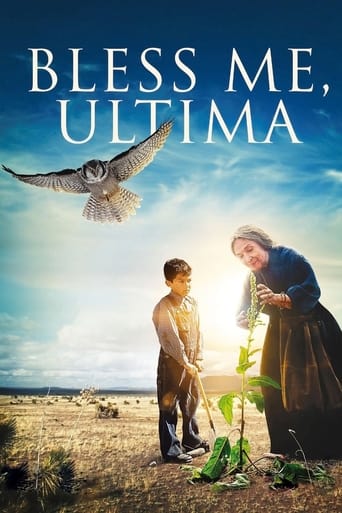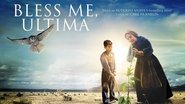A_Different_Drummer
I am thinking this is one of those films you either get .. or you don't. This is an astonishingly simple story about a young boy of Mexican extraction set during WW2. Slight of stature but strong of faith, he is old enough to question what adults tell him and at the same time young enough to actually see the truth when it presents itself (a trait most of us lose as we age). His extended family includes Ultima, also known as La Grande, a woman who, depending on your view of the story, is either a very clever local healer and/or a witch and/or a true descendant of the teachers or "nature-priests" that Carlos Castanada made famous in the 60s. The music is haunting. The story is engaging. I doubt I will ever forget this film but if you try it and don't connect with it, that's OK too.
josephtome1964
The novel, which has become a staple of high-school lesson plans and thus qualifies as Great Literature, deserves all the plaudits that have been heaped upon it. I read the work for the first time a few years ago and found it very moving. Like To Kill a Mockingbird (to which it has often been compared), its deceptively simple coming-of-age tale is the prism through which we are allowed a view of a larger picture: the merging of a mystically-inclined Native American way of life and more establishmentarian (and yet, in its way, even more superstitious) Catholic Hispanic culture, as well as the impact encroaching modernity has on both. Moreover, the story explored, through the relationship between young Antonio and the wise old curandera Ultima, the meaning of the connections human beings have with one another and the natural world of which they are a part, all beautifully weaved together by the skill of the author Rudolfo Anaya. (I will also add that, when I read the novel, its simple but powerful evocation of a distant time and place, the love between a growing and inquisitive boy and the old woman who effectively serves as his grandmother, and the neo-pagan lessons she imparts all helped me through a tough time, which is certainly one of the blessings of great writing.) So one can imagine my excitement when it was announced a film version was finally in the works and now, after having seen the movie, one may also imagine my disappointment over a work that is barely a shadow of the book. While decidedly earnest and also largely faithful to the source material, the film has none of the magical beauty of the novel. Indeed, the whole enterprise seems misbegotten. I suspect Carl Franklin, a talented director who has made such fine films as One False Move and Devil in a Blue Dress, was the wrong choice for this project. The direction is humdrum and the script he penned is weak, beginning with the idea of having the great Al Molina narrate the story as an adult Antonio. While it's always good to see a film make liberal use of Hispanic actors, every role, other than Miriam Colon as Ultima, seems miscast. The whole movie, for lack of a better description, just lays there, possesses little if any of the wonder over life and love and nature that Anaya made come alive on the page.In his review, the late Roger Ebert generally praised this film, stating that the movie took its time and did not, as so many other films in this day and age often do, completely dispense with subtlety and over explain everything. While I appreciate his point, I think a film can sometimes be too spare and thus too obscure. It was a mistake, I think, to focus so much on young Antonio and his sometimes confused child's eye view of the world. It would have been enlightening, particularly for those who haven't read the novel, to see more of Ultima and her "magic," her pagan-infused Catholic teachings.A completely re-written script would have well served this project and the fuller and more subtly complex film that might have resulted would have come closer to capturing what the author conveyed. I missed seeing that golden fish in the river.
koltpride17
Bless Me, Ultima Both the movie and the book expressed a wide view of different moods, details, and analysis. The book took the story one step at a time as the author, Rudolfo Anaya, progressively showed how the main character Antonio developed along with the conflicts of the novel. The book was good with a very detailed insight that made you feel as if you were a part of the book. The movie emphasized the major influences on Antonio as he becomes the age where you decide who and what you are going to be as an adult. The movie was pretty fast paced to fit the whole plot of the book into film, but it did not include the golden carp like it did in the book. This gave Antonio another religion to think about and I think this was very important to the book and the movie did not include it. Also, I like how the book goes into extreme detail to give you a perfect idea to how the story is meant to be portrayed. I liked to see each of the ways that Bless Me Ultima is expressed, but overall, the movie and the book was good.
Aven G
Both the movie and the book for Bless Me, Ultima have very intense scenes. The lessons they teach are very relatable. They question elements of morality and social prejudice that really allow you to think deeply about actual life. The movie gets the upper hand in that the music played really intensifies the mood and allows you to feel the emotion behind every single scene that the book is unable to do. The book however is very good as well. Since you actually get to read what is going on, I feel like you can really get a better and deeper understanding of Antonio's thoughts. Reading his narration throughout the whole book allows a reader to get to know him on a very personal level. I felt like I knew Antonio more from reading his thoughts in the book than watching him in the movie. The movie does leave out certain aspects of the book that I feel were very important but nonetheless it did not add any nonsense and followed the storyline pretty well in my opinion.




